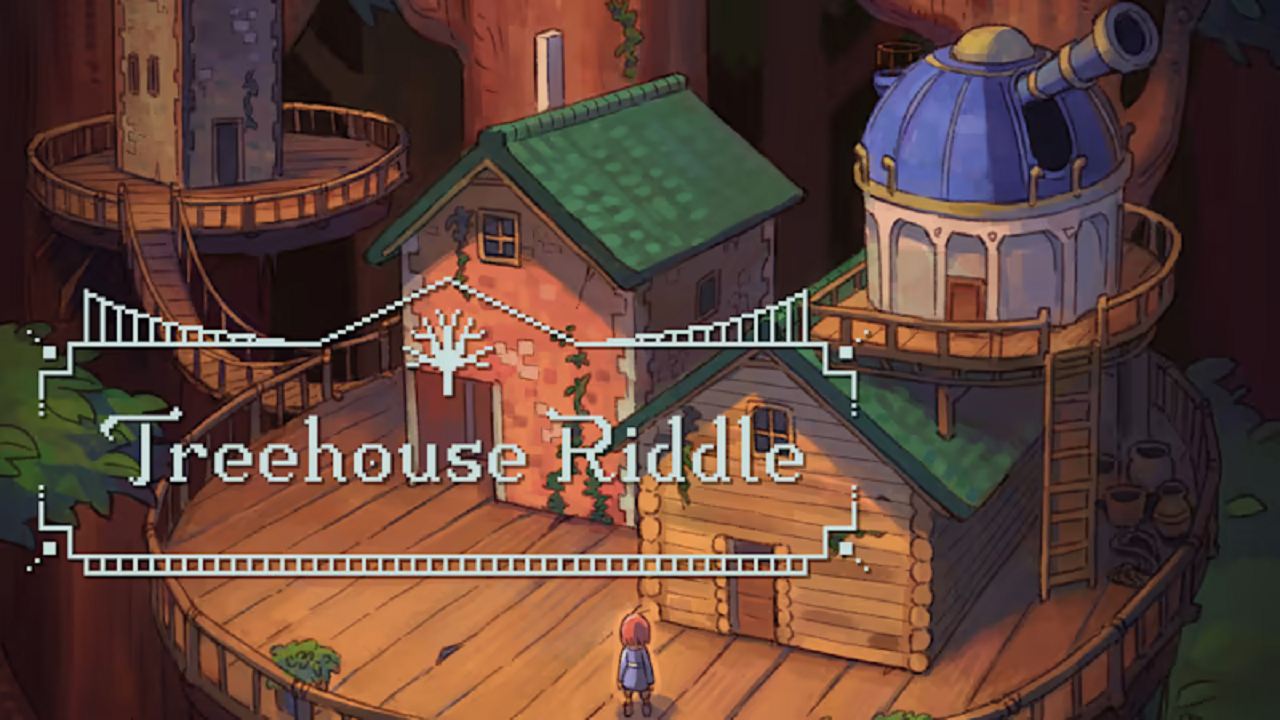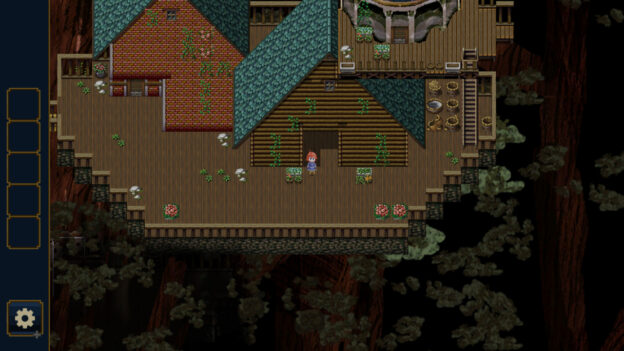Treehouse Riddle is a puzzle title, and I mean puzzle with a capital P. If you eat, sleep, and breathe puzzler games, this one offers a good amount of brain-bending content. But at times, I felt like I was taking the SATs.
The puzzles are wrapped in a unique setting, a giant treehouse with multiple buildings. The story is cryptic, with you in control of an unknown girl. While I guessed pretty early on where the plot was heading, it still wasn’t bad and avoided some of the more overused cliches, which I appreciated. I won’t spoil anything about how it develops, though. Unless pointing out how absurdly long the elderly gentleman’s nose is counts as a spoiler.
Each area has a series of puzzles, and completing them unlocks a final (much more difficult) puzzle, so you can exit and move on. Think of it as Layton meets an escape room. But while the Layton games have puzzles that are good more often than not, Treehouse Riddle has puzzles that are math more often than not.
Yes, there were far too many math puzzles for our liking (my wife and I). There just wasn’t a balance of variety. Occasionally there was the odd tricky gimmick, too, which left us unfulfilled when we solved it. Towards the end, we had to jot down notes to solve a few.
Speaking of the end, it felt padded, with backtracking and redundant puzzles. At least the story kept us going until the end. Well, almost. After the five hours or so it took us, a second, even more challenging mode was unlocked. Content isn’t the issue here. Instead, it’s a question of whether the content is entertaining enough.
At least the hint system ensures you’ll never be totally stuck. Many of these puzzles have an objective that isn’t clear, so the first hint always shows the rules. Subsequent clues give you more direction, so you could knock off a fair chunk of time if you used hints liberally. Of course, you can also skip puzzles altogether; although we never tried this, it’s a thoughtful inclusion to be used in moderation.
The game has some nicely done piano music that is relaxing, even beautiful sometimes. However, the second mode starts with a tune that sounds out of Mario Kart. It fits about as well as Milli Vanilli leading the Mormon Tabernacle Choir. Wisely it soon gives way to some more fitting and enjoyable music. So no big complaints with these tunes, which are an asset to the head-scratching puzzles.
Treehouse Riddle isn’t bad for what it is, a niche puzzle game. If you’re part of that niche, and the thought of busting out pen and paper to solve complex math problems appeals to you, by all means, this is a satisfactory implementation. But the lack of variety keeps me from giving this a broad recommendation as a good game since I didn’t enjoy my time enough with it. The unique setting, solid story, and good music only go so far.
Review: Treehouse Riddle (Nintendo Switch)
Fair
Treehouse Riddle isn’t bad for what it is, a niche puzzle game. If you’re part of that niche, and the thought of busting out pen and paper to solve complex math problems appeals to you, by all means, this is a satisfactory implementation. But the lack of variety keeps me from giving this a broad recommendation as a good game since I didn’t enjoy my time enough with it. The unique setting, solid story, and good music only go so far.





